The word “chakra” comes from the ancient Indian language of Sanskrit and translates to “wheel” or “circle”. Chakras are energy centers in the body that are believed to correspond to different aspects of our physical and emotional well-being. According to Hindu and Buddhist beliefs, the proper alignment and balance of these chakras can enhance our overall health and bring about a sense of inner peace.
The Seven Chakras
There are seven main chakras located along the central axis of the body, from the base of the spine to the top of the head. Each chakra has a unique color, symbol, and meaning.
1. Root Chakra (Muladhara)
The first chakra, located at the base of the spine, represents our sense of stability, security, and survival. It is associated with the color red and is symbolized by a lotus flower with four petals.
2. Sacral Chakra (Svadhisthana)
Located just below the navel, the sacral chakra is associated with our creativity, sexuality, and passion. It is represented by the color orange and a six-petaled lotus flower.
3. Solar Plexus Chakra (Manipura)
The third chakra, located above the navel, is connected to our self-esteem, confidence, and personal power. Its color is yellow and its symbol is a ten-petaled lotus flower.
4. Heart Chakra (Anahata)
At the center of the chest, the heart chakra correlates with our ability to love and feel compassion. It is represented by the color green and a twelve-petaled lotus flower.
5. Throat Chakra (Vishuddha)
The fifth chakra, located at the throat, governs our ability to communicate and express ourselves authentically. Its color is blue and its symbol is a sixteen-petaled lotus flower.
6. Third Eye Chakra (Ajna)
Situated between the eyebrows, the third eye chakra is associated with our intuition and inner wisdom. Its color is indigo and its symbol is a two-petaled lotus flower.
7. Crown Chakra (Sahasrara)
The seventh and final chakra, located at the top of the head, signifies our connection to the divine and spiritual enlightenment. Its color is violet or white and its symbol is a thousand-petaled lotus flower.
The Meanings Behind the Chakras
Each chakra is associated with various physical and emotional traits and imbalances in these energy centers can manifest in different ways.
Physical Symptoms:
- Root Chakra: lower back pain, constipation, immune system disorders
- Sacral Chakra: menstrual and reproductive issues, lower back pain
- Solar Plexus Chakra: digestive problems, allergies, adrenal gland issues
- Heart Chakra: heart and lung problems, high blood pressure, asthma
- Throat Chakra: throat and thyroid problems, TMJ, ear infections
- Third Eye Chakra: headaches, eye problems, neurological disorders
- Crown Chakra: migraines, depression, mental fog
Emotional and Psychological Symptoms:
- Root Chakra: fear, anxiety, financial stress, feeling ungrounded
- Sacral Chakra: guilt, shame, low self-esteem, lack of creativity
- Solar Plexus Chakra: power struggles, self-doubt, controlling behavior
- Heart Chakra: loneliness, codependency, trust issues, inability to forgive
- Throat Chakra: difficulty expressing oneself, fear of judgment, secretive
- Third Eye Chakra: lack of clarity and intuition, difficulty making decisions
- Crown Chakra: disconnected from spirituality, close-mindedness
How To Balance and Align Your Chakras
There are several practices that can help balance and align your chakras, promoting physical, emotional, and spiritual well-being.
1. Meditation
Meditation is a powerful tool for calming the mind and promoting overall balance in the body. Focusing on a specific chakra during meditation can help to clear any blockages and restore its energy flow.
2. Yoga
Yoga poses, specifically those that involve twisting and deep breathing, can help to stimulate and balance chakras. For example, the seated spinal twist can target the sacral and root chakras, while the fish pose can open up the heart chakra.
3. Use Gemstones
Crystals and gemstones have been used for centuries for their healing properties. Each chakra has a corresponding gemstone that can help to balance its energy. For example, amethyst can be used for the third eye chakra, while rose quartz is associated with the heart chakra.
4. Practice Mindfulness
Being present and mindful can help to bring balance and alignment to the chakras. Simply taking a moment to focus on the present and the sensations in your body can help to release any stagnant energy and improve the flow of chakra energy.
5. Seek Professional Help
In some cases, chakra imbalances may be deeply rooted in past traumas or emotional blockages. Seeking the help of a professional energy healer or therapist can assist in identifying and releasing these issues, leading to a more balanced chakra system.
Conclusion
Understanding the chakras and their meanings can help us to become more in tune with our physical, emotional, and spiritual selves. By recognizing and addressing imbalances in our chakras, we can work towards achieving a state of overall well-being and harmony.
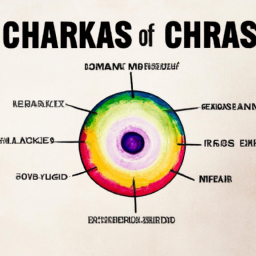
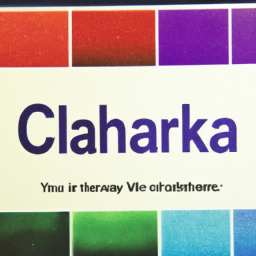
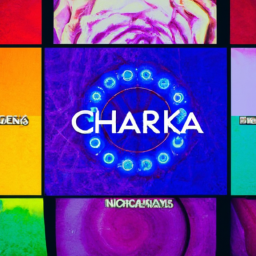
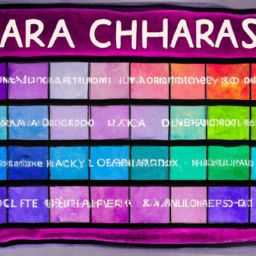
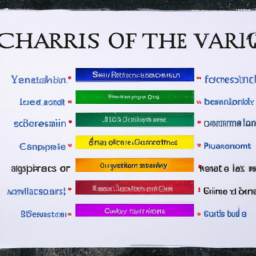
Fascinating topic!
CynthiaGlick: Packed with so much info!
Great post!
Unbelievable insight – can’t wait to learn more!